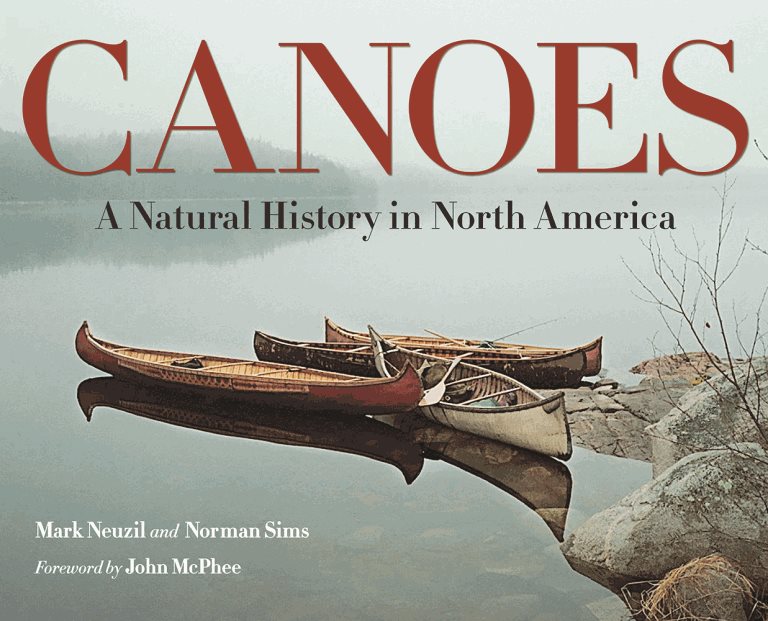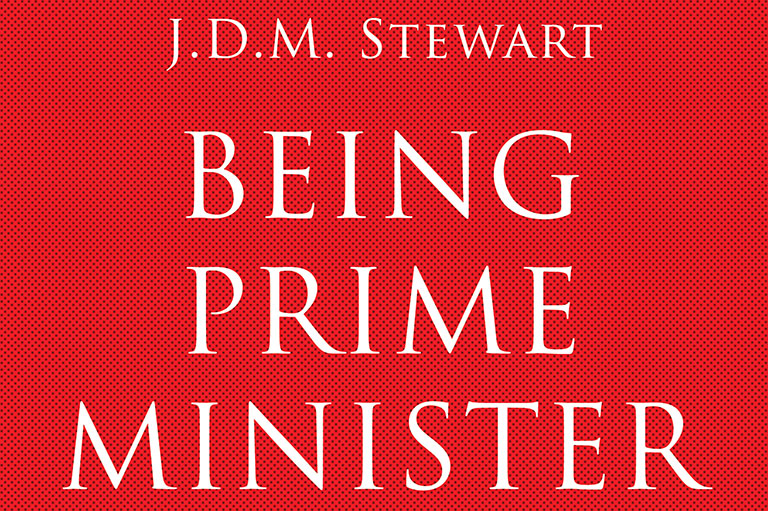Canoes

Canoes: A Natural History in North America
by Mark Neuzil and Norman Sims
Fitzhenry & Whiteside, 408 pages, $40
For centuries, philosophers have been trying to explain what an experience is. From Aristotle, to Jean-Jacques Rousseau, to John Dewey, they and we are always trying to navigate the turbulent waters of experience. In the nineteenth-century United States, the likes of Ralph Waldo Emerson, John Muir, and Henry David Thoreau began to associate experiences — at least experiences that are transformative — with those occurring in nature. Americans writers like Mark Twain and Walt Whitman excelled at engaging our colonial desire to engage with nature and to do away with the yokes of industrialization.
This romantic understanding of experience is alive and well in the twenty-first century. American writers Mark Neuzil and Norman Sims, both of them scholars of journalism and canoe enthusiasts, bring forth the essence of this nineteenth-century existential movement in their new book, Canoes: A Natural History in North America. The desire for connecting with nature is a common theme for the authors, who write, “Canoes allow us to engage closely and quietly and intimately with our environment, and like the natural world itself, canoes have different adaptations.”
The canoe, an Indigenous invention with no major alterations to its design since contact with Europeans, is put forth as the instrument for selfexploration, actualization, and connection to something spiritual. With a foreword by New Yorker writer John McPhee, Canoes tells the story of this ingenious craft. The book moves from Indigenous iterations made from dugout trees or birchbark, to adaptations used by Samuel de Champlain and the Northwesters (partners or employees of the North West Company), to new, lighter, and cheaper configurations of the twentieth century.
Beautifully designed and written with romantic prose, Canoes is partly a history of the canoe and of the people who make them and partly a position paper on how the canoe is fundamental to transcendental experiences and the development of culture. The book is principally based on the stories of those who made canoes, those who pushed their limits, such as the explorer Alexander Mackenzie, and master builders such as New Hampshire’s Tom Seavey, who painstakingly restores wooden and canvas canoes purely for the experience.
Canadian writers who explore the significance of the canoe are generally less romantic. When we think of Farley Mowat, Don Starkell, or Adam Shoalts’s recent book A History of Canada in Ten Maps, the canoe represents struggle, desperation, and a Conradian introspection into the dark caverns of the human experience. While offering homages to Tom Thomson and the fur trade, as well as the argument that Canada was created by the canoe, Neuzil and Sims nonetheless provide a very American lens on the development and essence of the canoe experience. They suggest that canoe journeys “link in important ways with the human-powered movement, with conservation, and with measuring our place in nature.”
Included in their book are remarkable archival photos, maps, advertisements, and schematic diagrams of all things canoes. Both authors are bathed in the experience of canoeing, crafting canoes, and growing up with them. They live and breathe canoes, and this passion oozes from the pages. Yet they do not bring an entirely critical eye when looking at themes of colonialism, oppression, and privilege. Canoes is an attempt to recognize the brilliance of the design of one of the most remarkable, significant, and innovative vehicles ever created.
If the acts of building and paddling canoes have some metaphysical connotations, then perhaps this isn’t so bad. The idea of people ditching their phones for paddles might offer an antidote to the malaise of postmodernity. Perhaps we need more folks like Thoreau, who proclaimed: “Everyone believes in something. I believe I’ll go canoeing.”
We hope you’ll help us continue to share fascinating stories about Canada’s past by making a donation to Canada’s History Society today.
We highlight our nation’s diverse past by telling stories that illuminate the people, places, and events that unite us as Canadians, and by making those stories accessible to everyone through our free online content.
We are a registered charity that depends on contributions from readers like you to share inspiring and informative stories with students and citizens of all ages — award-winning stories written by Canada’s top historians, authors, journalists, and history enthusiasts.
Any amount helps, or better yet, start a monthly donation today. Your support makes all the difference. Thank you!
Themes associated with this article
Advertisement




